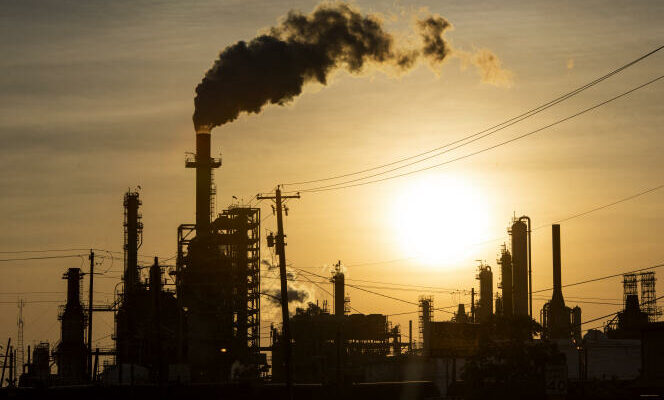PThe more oil the United States extracts, the more the world’s largest producer upsets the Organization of the Petroleum Exporting Countries (OPEC). With Saudi Arabia at its head, this cartel of twelve member countries needs to exert influence on the market, to push prices upwards. However, its weight in global oil production (crude, tar sands, shale, condensates) has already declined: it went from 43.2% in 2012 to 36.3% in 2022, over now more than 93 million barrels per day, according to statistics from a British organization, the Energy Institute. At the same time, the United States’ share increased: it rose to 18.9% in 2022, compared to 9.6% ten years earlier, that is to say before the Texan “revolution” of shale oils.
To halt its decline, OPEC also counts on ten allies forming OPEC+, since 2016. Or an additional 19% of global supply in 2022, mainly driven by Russia. The institution remains “an essential player for market stabilization”, insists economist Emmanuel Hache, from the French Institute of Petroleum and New Energies. This “unidentified theoretical object” has crossed the decades since 1960. After causing the oil shock of 1973, it resisted the counter-shock of the 1980s. Including during the war between two of its members, Iran and Iraq.
“The position of OPEC could increase” again in the years to come, even warns Giacomo Luciani, scientific advisor at the School of International Affairs at Sciences Po Paris. Because it encompasses approximately 70% of proven oil reserves (i.e. the stock available under current economic conditions), according to 2020 statistics from the British oil company BP.
“No sufficient control over supply”
OPEC and its allies are already leaving 5 million barrels per day underground compared to 2022, according to the Agence France-Presse count. This effort, mainly carried out by the Saudis and the Russians, is being extended at least until June. Until now, quota restrictions have kept prices at a high level: a barrel of Brent, the benchmark in Europe, has averaged 83 dollars (around 76 euros) throughout 2023. Less than in 2022 ($101), against a backdrop of war in Ukraine, but more than in 2021 ($71).
“OPEC does not have sufficient control over supply to regulate it in the long term”considers Keyvan Piram, researcher at the University of Paris-Panthéon-Assas, specializing in energy and the environment. “A reduction in production may occasionally contribute to pushing up prices, but the loss of this OPEC supply will eventually be offset elsewhere, as the price increase will allow other fields to become profitable. »
You have 22.73% of this article left to read. The rest is reserved for subscribers.
